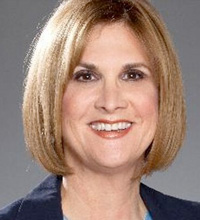Thanks to Denise Federer for a new take on Next Gen leadership and how advisors can help adult children of business owners gain the respect and trust of company employees.
Establishing leadership presence is important at any business, but it’s magnified tenfold, if not more, at family businesses when new leaders are the owners’ children. Even if successors have impeccable qualifications — and especially if they don’t — long-time employees may have a hard time respecting someone they’ve seen “from braces to the boardroom.”
Leaders with presence have the ability to gain the trust and respect of their employees. For adult children at family businesses, the latter can be a great challenge, as I’ve often seen veteran employees tolerate work with next-generation leaders, but not be fully engaged or demonstrate respect for them on a professional level. These employees may respond in one of two ways: being dismissive of the next-gen leaders’ authority or being overly solicitous and failing to assert themselves when appropriate. Either situation is not good for the business.
One way next-gen family business leaders can earn respect and establish their leadership presence is by incorporating a strong communication style, especially when they need to have difficult conversations with employees. The following are four key behaviors that are often associated with having difficult conversations:
- Be intentional — identify your ideal outcome prior to the start of what can be a contentious discourse.
- Clarify the issues — be objective in describing behavior and providing data rather than attacking the other person.
- Listen non-defensively — hear the other person’s perspective and adjust your emotions to fit theirs.
- Take the high road — acknowledge the other person’s feelings and perspective, even if you don’t agree with it.
Another well-regarded strategy that can help gain respect as part of establishing leadership presence is to establish a physical presence that’s not condescending, tentative or fearful. How leaders carry themselves is something employees will use to develop perceptions about them.
And, it’s especially important for adult children successors at family businesses to act above reproach, certainly not giving anyone the impression they believe their position is a birthright. It’s always a good idea to:
- Put your work ethic on overdrive; be the first in and the last out.
- Be humble; value what others have brought to the business.
- Be genuine and personable.
- Respect the company culture and determine where you fit in.
- Establish credibility through your actions and the way you communicate.
- Save enjoying privileges until they’re earned; pay your dues first.
Even when next-gen leaders at family businesses do everything “right,” it still takes time to gain the support and confidence of three very important constituencies: current clients, current staff members, and the current leader. The latter should never be overlooked, due to how hard it may be for a parent and longtime family leader to let go, even in the best of situations. It’s a good idea for successors to:
- Recognize the current leader’s fear and uncertainty of the future.
- Acknowledge that any resistance encountered to the transfer of power may merely be frustration at not knowing how to transfer all the knowledge about the business they have in their head.
- Create strategies for a “brain drain” so you can understand the business from the current leader’s perspective.
Unfortunately, the number of adult children successors in family businesses who adhere to the advice presented above is rather small, something that’s reflected in the very low rate of family businesses that transition to even the second generation — let alone the third or fourth. Establishing leadership presence is a great first step toward confidently leading a family business to long-term success.
About the contributor
 Denise P. Federer, Ph.D., CFBA, CFWA, is founder and principle of Federer Performance Management Group, LLC in Tampa, FL. She is a psychologist and executive coach and can be reached at dfederer@fpmg.info.
Denise P. Federer, Ph.D., CFBA, CFWA, is founder and principle of Federer Performance Management Group, LLC in Tampa, FL. She is a psychologist and executive coach and can be reached at dfederer@fpmg.info.





